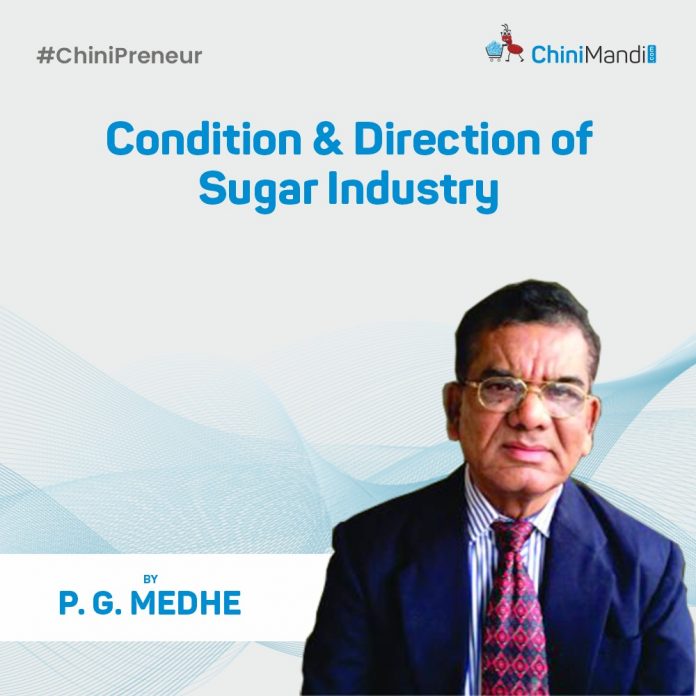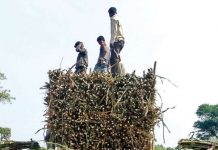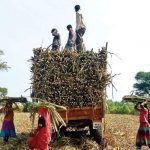As the sugar season 2024-25 approaches, the State of Maharashtra anticipates ample availability of sugarcane. However, the start of the sugarcane season has been delayed due to the Assembly elections. This delay, coupled with significant environmental changes like delayed heavy rains and high density has led to early flowering in several sugarcane varieties, including Co-0265, Com-9057, Pdn-15012, VSI-8005, and Co-86032.
Approximately 25% of the sugarcane cultivation area has been affected by this early flowering phenomenon. This development poses challenges for both cultivators and sugar factories, potentially impacting yield and sugar content. As we navigate these challenges, it is crucial to understand the underlying causes and explore effective mitigation strategies to ensure a successful sugar season.
FACTORS INFLUENCING EARLY FLOWERING:
Early flowering in sugarcane can be influenced by several factors, including:
1) Photoperiod:
Changes in daylength can trigger flowering. Sugarcane typically requires a reduction in daylength to initiate flowering.
2) Temperature:
Both day and night temperatures play a crucial role. Deviations from optimal temperatures can induce early flowering.
3) Humidity:
High humidity levels can also contribute to early flowering.
4) Nutrient Availability:
Adequate nutrients are essential for the vegetative growth of sugarcane.
5) Deficiencies can lead to stress-induced flowering.
Physiological Maturity:
The maturity stage of the cane can affect its propensity to flower.
ADVERSE EFFECT ON CANE CULTIVATORS & SUGAR FACTORIES:
1) Reduced Sucrose Content:
Early flowering depletes the sucrose reserves in the stalks, leading to lower sugar yields.
2) Decreased Cane Yield:
Flowering can halt the vertical growth of the cane, resulting in shorter and less developed stalks and finely loss in weight.
3) Economic Losses:
Lower yields and reduced sugar content translate to financial losses for both cultivators and factories…..weight loss/ sugar recovery loss.
IMPACT ON CANE HARVESTING LABOURERS:
1) Reduced Work Opportunities:
Lower yields mean less cane to harvest, potentially reducing the amount of work available for labourers.
2) Economic Hardship:
With fewer harvesting opportunities, laborers may face economic difficulties due to reduced income.
3) Skin Problems in Sugarcane Harvesting Workers
Sugarcane harvesting workers often face several skin-related issues due to their working conditions:
4) Contact Dermatitis:
This is common among agricultural workers, including those in sugarcane harvesting. It can be caused by exposure to irritants like plant sap, pesticides, and fertilizers.
5) Sun Damage:
Prolonged exposure to the sun can lead to sunburn and increase the skin problems.
6) Infections and Allergies:
Cuts and abrasions from handling the cane can lead to infections. Allergic reactions to insect bites and plant materials are also common.
EFFECT ON AVAILABILITY OF GREEN FODDER FOR ANIMALS FROM SUGARCANE LEAVES:
The availability of green leaves from sugarcane as fodder can be affected by several factors:
a) Early Flowering:
This can reduce the overall biomass of the plant, including the green leaves that are used as fodder.
b) Harvesting Practices:
The method and timing of harvesting can impact the quantity and quality of green leaves available for fodders.
CONCLUSION:
In conclusion, the early flowering of sugarcane in Maharashtra poses a significant challenge for the 2024-25 sugar season. With approximately 25% of the crop affected, it is imperative for stakeholders to understand the environmental factors contributing to this phenomenon and implement effective mitigation strategies. By addressing these issues proactively, we can minimize the impact on yield and sugar content, ensuring a stable and productive season for both cultivators and sugar factories. Collaborative efforts and adaptive management practices including immediate starting of crushing operations without any hindrances will be key to overcoming this hurdle and sustaining the growth and prosperity of Maharashtra’s sugar industry.
P.G. Medhe is the former Managing Director of Shri Chhatrapati Rajaram Sahakari Sakhar Karkhana Ltd and sugar industry analyst. He can be contacted at +91 9822329898.












